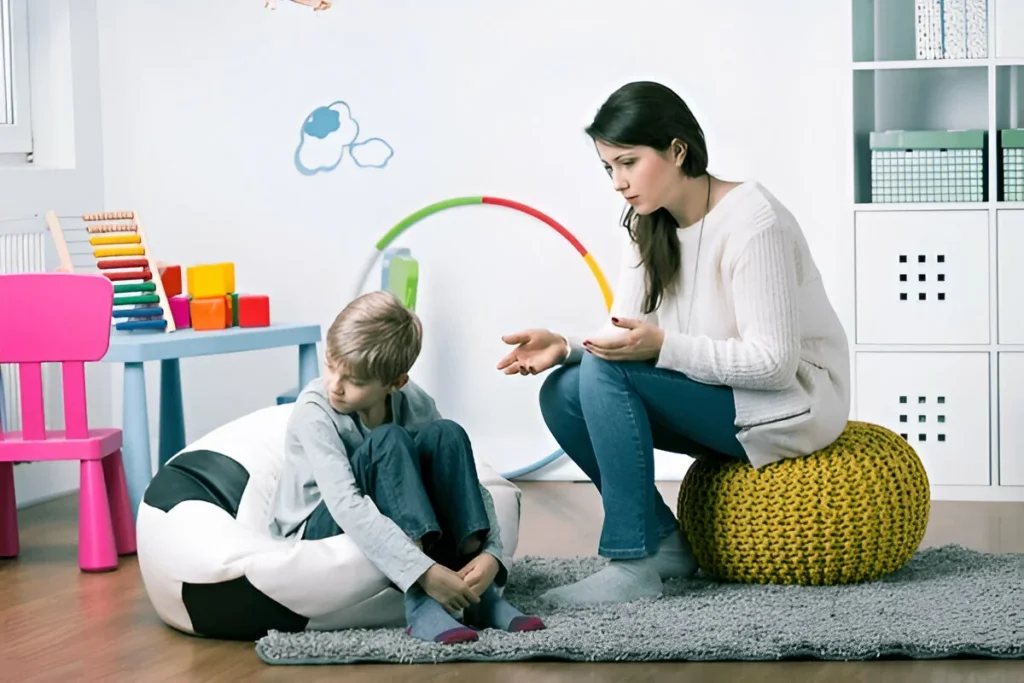-
129, Block-A Bangur Avenue, Mousumi Appartment, Kolkata 700055
129, Block-A Bangur Avenue, Mousumi Appartment, Kolkata 700055

Introverted kids often communicate in subtle ways. Learn how parents can improve listening skills to support their child’s emotional growth, guided by insights from a reputed counselor.
Parenting is a process of discovery. Perhaps one of the most gorgeous—yet most difficult—discoveries is that your child is profoundly introverted. Unlike extroverted children who usually share freely and love group activities, introverted children internalize their experiences. They tend to express themselves through quiet contemplation, subtle movements, or intense reflection instead of open expression.
This can sometimes make parents ask themselves, “Is my child okay?” or “Why don’t they talk to me more?” The solution is in the way you listen. Listening to an introverted child doesn’t necessarily mean hearing them talk—it means listening to their silence, honoring their space, and seeing their world.
This blog takes you through the importance of listening, listening better, and the tools required to create a more intimate relationship with your introverted child.

Introverted children aren’t shy or socially incapable; they just need to recharge their batteries by being alone and prefer thinking before they act. Because of this, parents may misinterpret their being quiet as disinterested or withdrawn. If this misinterpretation is ongoing, it can affect a child’s feeling of emotional safety.
Learning to listen well is about being there for your child in a way that honors their internal world, even when they don’t always express it in words.
Parents who refine their listening approach often discover that their children are far more expressive and insightful than they first appeared.
Repeat or paraphrase what your child has said to show that you’re genuinely listening.
This helps them feel validated and understood.
Instead of asking, “Did you have a good day?” try:
This encourages deeper conversation and gives them space to explore their thoughts.
Introverted kids often express themselves through:
Watch for signs like pulling away, not making eye contact, or sudden silence. These are opportunities to check in gently without pressing for answers.
Don’t rush an answer. Let them think. Silence is often where the most profound thoughts are forming.
This shows respect for their natural communication pace.
Create the conditions that allow emotional sharing to happen naturally:
They may not respond immediately, but over time, these rituals build trust.
When a child opens up, it’s tempting to fix the problem. Instead, try to first acknowledge their experience.
Validating feelings helps them learn that emotions are not something to hide.

Correcting these habits takes awareness, but the change it brings is often remarkable.
When introverted children feel truly heard, they:
Listening strengthens not just communication but the entire emotional framework a child relies on to grow confidently.
Not all introverted kids express themselves in words. Many communicate more comfortably through:
Look for ways to join them in their world rather than pulling them into yours.
Children learn by imitation. To teach listening:
When you model emotional openness, your child learns it’s okay to do the same.
Sometimes, despite your best efforts, you might notice signs of deeper emotional strain:
In such cases, it may be helpful to consult a trained child counselor. A professional counselor can offer customized support, tools, and a safe outlet for your child to express themselves.
Helping introverted kids thrive isn’t about changing who they are—it’s about supporting them to feel safe, valued, and understood. When children know they can speak at their own pace and still be heard, they blossom emotionally.

No. Shyness is fear-based and often linked to social anxiety. Introversion is a personality trait that involves preferring less stimulation and smaller groups.
Encourage self-expression, not personality change. Give them opportunities but respect their comfort zones.
As long as needed. You can gently check back in, but forcing the conversation often backfires.
Absolutely. Many introverted kids are deeply empathetic and build very strong, meaningful relationships.
Listen without judgment. Let your child know that they are accepted exactly as they are.
Listening to introverted kids isn’t just about quiet conversations—it’s about cultivating presence, trust, and understanding. It means respecting their silence, waiting with patience, and embracing their unique communication style. When you, as a parent, master the art of listening, you create a safe harbor where your child can dock their thoughts, feelings, and fears without hesitation.
With continued awareness and empathy, your quiet child might just teach you the loudest lessons about love, connection, and trust.